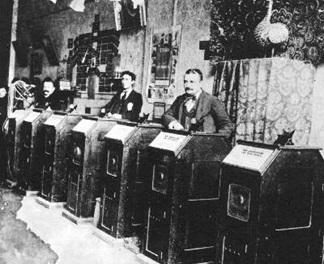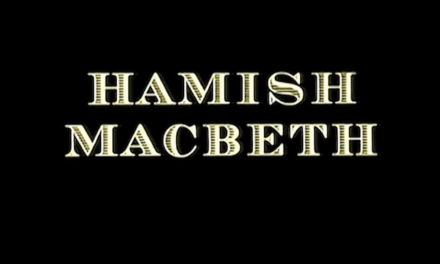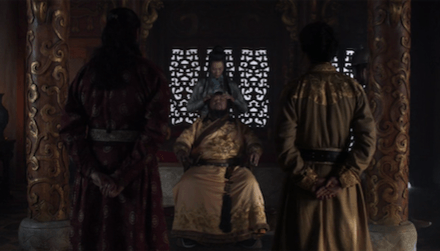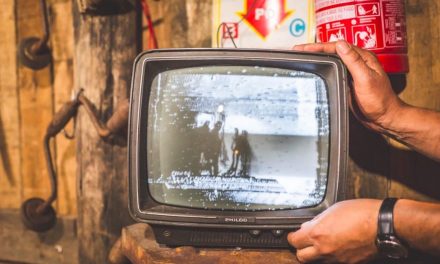Over the last few years I have been loosely following the unfolding project known as the ‘Marvel Cinematic Universe’ (beginning with Iron Man, 2008) with a degree of interest, albeit that of a cinema-going layperson with little knowledge of comics or superheroes. But as somebody whose research interests encompass issues of serial narratives in television, what strikes me as interesting about these films is that they seem to constitute essentially a new mode of serialised storytelling for the cinema. Whilst certain ‘high-end’ television series are routinely praised for bringing supposedly ‘cinematic’ values to television, it seems to me that the Marvel series doing something which might be conceptualised as the reverse, porting modes of serialised storytelling that have been prominently developed on television over the last few decades into a popular film series. In this vein, I might suggest that the different ‘phases’ of the project can be seen to loosely correspond to a typical serialised season structure of contemporary television drama; thus films such as Iron Man 2 (2010) or Thor (2011) serve as average ‘case-of-the-week’ instalments, building up to the intermittent Avengers crossover films which draw together the various characters and plot threats into moments of particular climax, and thereby play a role analogous to the season finale.
It is therefore perhaps appropriate that the ‘second phase’, which bridges the gap between The Avengers (2012) and Avengers: Age of Ultron (2015), would expand the narrative canvas into a television spin-off series. Agents of SHIELD (2013-) focuses upon the spy organisation SHIELD, which had previously lurked in the background of most of the films, constituting the bureaucratic glue that held the ‘universe’ together. More specifically, it follows a team of agents led by Agent Phil Coulson (Clark Gregg), a breakout supporting character from several of the films, who fly around the world in a plane solving cases that blur espionage narratives with the science fiction leanings of the superhero films. Although somewhat buried beneath the more arresting signifier of the Marvel brand, I would argue the programme’s actual generic category is best conceptualised as a revival of the light-hearted spy-fi adventure series of the 1960s, such as The Man from UNCLE (1964-68) or Mission: Impossible(1966-73). This is an entirely appropriate model, as the comics version of SHIELD originally emerged from the 1960s vogue for utopian international spy organisations with catchy acronyms.

A further ingredient in the mix, which generated some excitement in the build-up to its first transmission, is the supposed authorship of Joss Whedon according to the modern ‘show-runner’ model. Whedon has recently achieved a significant career re-emergence within the context of the Marvel project as writer and director of The Avengers, but in terms of television output is undoubtedly best known for his breakthrough trio of programmes, Buffy the Vampire Slayer (1997-2003), Angel (1999-2004) and Firefly (2002). Yet by contrast to those earlier series, there is little sense that Whedon himself is a particularly strong presence at the helm of Agents of SHIELD. Of course, the role of the show-runner is not defined merely in terms of their own writing skills but also their ability to mentor and co-ordinate a team of writers according to a distinctive ‘house style’, and this is perceptible here, with a distinctively ‘Whedonesque’ sense of wit serving as one of this series’ most successful elements from the start.

Agents of SHIELD is also highly invested in one of his work’s recurrent themes, specifically the creation of a ‘family’ unit from an oddball cast of characters. Making rich use of one of the spy genre’s favourite narrative devices, during the course of the first season no less than three characters on board Coulson’s plane are revealed to be, in some sense, a ‘mole’ pursuing an agenda at odds with the rest of the team. In the Whedon tradition, however, two of these are ultimately forgiven and reintegrated into the team, showing the supremacy of ‘family’ over espionage paranoia. In particular, the character Skye (Chloe Bennet) is a hacktivist for the Wikileaks age who initially infiltrates the team in order to pursue an ostensibly oppositional political agenda, yet by Episode 5 ‘Girl in the Flower Dress’ her true motives are revealed to be personal (seeking the truth behind the disappearance of her parents). Overall, this is what seems to be a not-entirely-satisfying attempt to address and close off the problem of this being the worst time ever to do a series about quirky, lovable men-in-black working for huge bureaucratic and technocratic structures.

Indeed, the casting of intelligence bureaucracy as ‘family’ works against a key yet often overlooked feature of previous Whedon series, that of their underlying anti-establishment attitude. Buffy, Angeland Firefly are widely acclaimed for their rich characterisation, and I would suggest that a key ingredient of this is that the protagonists are always positioned as free and liberated individuals in contrast to some stifling authority or bureaucracy which they continually kick against, be it the high-school principal, satanic law firms or space dystopias. A more ambivalent and pessimistic theme, which creeps in towards the end of Angel and is developed further in the later Whedon series Dollhouse (2009-10), is that of being in some way trapped within and complicit with the system, which might be conceptualised as a maturing or souring of this attitude. Yet by contrast, Agents of SHIELD focuses on characters who are, by definition, institutionalised people. Whilst it frequently dabbles with possibilities of there being other valid motivations in life than serving SHIELD or of the organisation itself being corrupted with conspiracy, ultimately the series firmly endorses service to an ideal of SHIELD, somewhat blunting the rebellious qualities that had previously characterised Whedon’s most interesting work. Thus, as the series progresses and becomes increasingly consumed with fantastical ideas derived from the films and comics, I would argue that its identity develops firmly into that of a Marvel series rather than a Whedon one.
Whilst it is hardly unprecedented for series to jump between film and television whilst preserving the same sense of ongoing narrative (particularly in the case of ‘cult’ properties, Star Trek and The X-Files standing as obvious examples), what seems to me different about Agents of SHIELD is the more complex way it weaves its storylines around the ongoing release schedule of Marvel blockbuster films, two of which came out during the course of the first series and were acknowledged in the episodes in various ways. We might consider this an instance of transmedia convergence, but what is interesting about this is the way it draws together the temporality of traditional network broadcasting with that of international film release schedules. Whilst developments such as the simultaneous release of entire seasons of House of Cards (2013-) on Netflix appear to reinforce the common hypothesis that the future of television drama lies in a separation from traditional practices of broadcasting, the convergence provided by Agents of SHIELD is designed around a viewer assumed to be following the weekly episode broadcasts according to a fundamentally traditional model of broadcasting. In this model, the cross-over storylines are carefully synched to be broadcast at a point several weeks after the related film has had its first release, providing time for the shared audience to go and watch the latter. (Of course, it is entirely possible for the narrative order to be reconstructed in retrospective DVD or download viewing, but the key point is that it is primarily designed with the original release/broadcast sequence in mind.)
Such crossovers are particularly fascinating for the ways in which they make the viewer highly conscious of the differences between these media. As massive-scale Hollywood blockbusters, the films have vastly larger budgets and employ A-list stars, whereas Agents of SHIELD operates on a more modest scale. Whilst the television series does a reasonably good job of approximating the design style of the films, sometimes when it is trying to give the impression of telling the same huge-scale events from the perspective of the ‘little people’, it struggles to come up with the scale to convince, something that would be far less noticeable were it a standalone television series. Perhaps one of the most distracting problems is the ongoing absence of Nick Fury, the character most associated with SHIELD in the public imagination. Samuel L. Jackson, who plays the character in the films makes a cameo in the second episode and then a full guest appearance in the finale, but otherwise has been (presumably) too busy and expensive for the series to use on a regular basis. Agents of SHIELD might have been able to get away with this if it hadn’t kept drawing attention to his absence through characters constantly having one-sided telephone conversations with Fury and then struggling to get in touch with him in later episodes, which sits oddly with the films in which he is hardly an elusive figure. Issues such as this, whilst probably inevitable, do give the unfortunate impression of the television series being too explicitly treated as a lesser cousin.
There’s an obvious cross-promotional current in play, as people who might normally favour one of these media are encouraged to engage with the other in order to get the ‘whole story’, yet Marvel are nonetheless faced with a problem as to if and how to engage with people who might only follow one medium. Again, cinema emerges supreme here, as to date there has been essentially nothing in the films that requires one to have avidly watched Agents of SHIELD, and thus one is left with the impression that the television series is assuming the larger part of the role of a vast unfolding promotional device. Agents of SHIELD itself was perhaps overcautious in its initial engagement with this problem. Episode 8 ‘The Well’, broadcast in November 2013, was positioned as an ostensible crossover with the same month’s Thor: The Dark World, and opened with the television characters clearing up the mess from the events of the film. However, the episode’s narrative quickly veered off into a largely unrelated plot, perhaps indicating concern on the part of the production team that the television audience could not be relied upon to go and watch the film.
By contrast, by the time of the release of Captain America: The Winter Soldier in March 2014, the idea that there is any such thing as an uncommitted viewer of Marvel has apparently been abandoned. An elaborate six-episode storyline beginning with Episode 16, ‘End of the Beginning’, and carrying through to the end of the first season deals extensively with the threat of the HYDRA conspiracy introduced in the film, showing little mercy to anybody who didn’t go to watch it. And whilst this briefly succeeds in animating the series with a greater sense of purpose, in many ways the final pay-off to this in the season finale, ‘Beginning of the End’, ultimately highlights the problems of positioning a television series as subordinate to a film series. Fury finally appears for a significant guest role, inevitably upstaging the regular cast despite being given little to actually do. Yet much of the series’ unfolding conspiracy storyline is attributed to him, effectively confirming an underlying sense that the preceding 21 episodes were too much a game of deferred expectations. More broadly, the HYDRA plotline fizzles out disappointingly, presumably due to Marvel’s desire to feature it in future films, causing Agents of SHIELD to be cheated of a satisfying climax to its own storyline.

Thus, whilst ongoing serialisation remains one of the most fascinating features of the Marvel project, so far the attempt to extend this into television has proven interesting but flawed. An imbalance in cultural status between the two media causes the television series to constantly feel frustratingly subordinate, in a way that is only noticeable through the contrasts to the film series that it invokes for its very identity. But it should be acknowledged that this is ultimately a first attempt at this kind of storytelling, and the second season or other ventures in this vein may yet find ways to smooth out these issues.
Dr Joseph Oldham has recently completed a PhD thesis entitled ‘Serial Narratives of the Secret State in British Television Drama, 1979-2010’ at the University of Warwick and is currently an Early Career Fellow at Warwick’s Institute of Advanced Study. He has published in the Journal of British Cinema and Television and the Journal of Intelligence History, and his profile can be found here.





